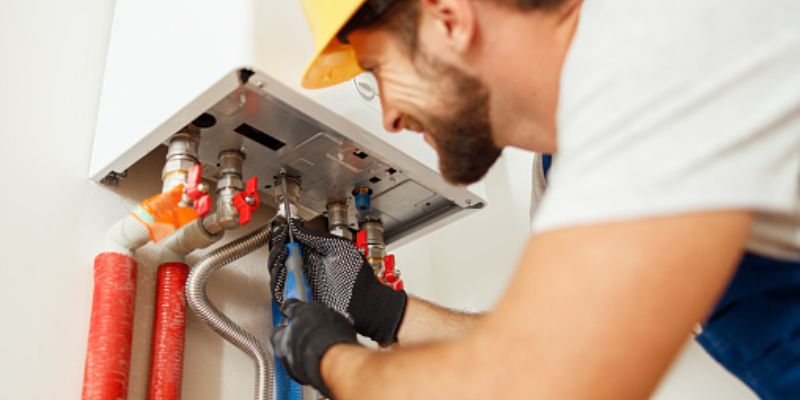Gas boilers are an essential part of many homes in Dublin, Ireland. They provide heating and hot water throughout the year, especially during the colder months. When a boiler stops working or starts showing warning signs, it can cause major stress and discomfort. This article explains everything homeowners in Dublin, Ireland need to know about gas boiler repair in simple English. It covers why repairs are important, common issues, warning signs, repair costs, professional services, and tips to prevent breakdowns.
Why Gas Boiler Repair Is Important
A properly working boiler keeps your home warm, comfortable, and safe. When a boiler develops a fault, ignoring the problem can cause:
-
Higher energy bills
-
Reduced heating performance
-
Sudden breakdowns
-
Carbon monoxide risks
-
Damage to internal boiler parts
Regular repair and maintenance ensure the boiler works efficiently, saves fuel, and lasts longer. In Dublin, where winters are cold and long, having a reliable boiler is essential.
Common Problems With Gas Boilers
Homeowners in Dublin often experience similar boiler issues. Below are the most common problems that require professional repair:
1. No Heat or Hot Water
The boiler may stop producing heat or hot water due to a failed diaphragm, airlock, thermostat issue, or low water pressure.
2. Boiler Leaks
Leaks can happen around pipes, seals, or internal components. This must be repaired quickly because leaks can cause water damage and rust inside the boiler.
3. Strange Noises
Gurgling, banging, or whistling sounds often point to problems like air in the system, low pressure, or a faulty pump.
4. Low Boiler Pressure
If the pressure gauge is below normal, it may reduce heating performance. The cause could be a leak, bleeding radiators, or a pressure release valve issue.
5. Pilot Light Keeps Going Out
Older boilers have a pilot light that can go out due to a faulty thermocouple or blocked gas supply.
6. Thermostat Not Working
A broken thermostat can cause the boiler to switch off unexpectedly or fail to heat the home properly.
7. Radiators Not Heating
Cold spots or uneven heating usually indicate sludge buildup or air trapped in the system.
Signs Your Boiler Needs Repair

You should call a qualified boiler technician in Dublin if you notice:
-
Weak or uneven heating in the home
-
Sudden increase in gas bills
-
Water leaking around the boiler
-
Boiler switching on and off repeatedly
-
Strange smells, especially gas
-
Yellow flame instead of blue
-
Loud noises from the boiler or radiators
Any unusual smell, especially gas, should be treated as an emergency.
Professional Gas Boiler Repair Services in Dublin
In Ireland, anyone working on gas boilers must be a RGII-registered gas installer. This ensures the technician is trained, certified, and legally allowed to repair gas boilers safely.
Professional repair services in Dublin usually include:
1. Full Boiler Inspection
The technician checks all parts of the boiler, including the burner, heat exchanger, pipes, electrical components, and safety controls.
2. Cleaning and System Flushing
Removing dirt, limescale, and sludge helps improve boiler efficiency and prevent future breakdowns.
3. Replacing Faulty Parts
Common replacement parts include pumps, valves, thermostats, sensors, and pressure gauges.
4. Fixing Leaks
All leaks are carefully sealed or faulty components replaced to prevent damage.
5. Carbon Monoxide Testing
Technicians check for CO leaks and ensure the boiler is safe to operate.
6. Restart and Safety Checks
Once repairs are complete, the technician tests the boiler to ensure everything is working safely and correctly.
Cost of Gas Boiler Repair in Dublin
Prices vary depending on the problem and the parts required. However, typical cost ranges include:
-
Minor repair: €80 – €150
-
Part replacement: €120 – €300
-
Major repair: €250 – €600
-
Emergency call-out: €100 – €200 (depending on time and location)
Boilers with older parts or rare components may cost more to repair.
How Long Gas Boiler Repairs Take
Most common boiler repairs can be completed within 1 to 2 hours. However:
-
Complex issues may take 3+ hours
-
Part replacements may require 24–48 hours if parts are ordered
-
Emergency repairs are usually done same day
How to Reduce Boiler Problems in the Future

Boiler issues can be prevented with simple steps:
1. Annual Boiler Service
Getting your boiler serviced once a year by an RGII-registered heating engineer helps identify problems early and ensures safe operation.
2. Keep the Boiler Area Clean
Avoid storing items near the boiler to ensure good ventilation and easy access.
3. Check Boiler Pressure Regularly
Maintaining the right pressure helps the boiler run smoothly.
4. Bleed Radiators
Removing trapped air from radiators improves heating performance and reduces strain on the boiler.
5. Insulate Pipes
Pipe insulation prevents freezing in cold months, which can otherwise cause major damage.
6. Use the Heating Regularly
Even in summer, turning the boiler on for a few minutes helps keep internal parts moving.
When to Replace Instead of Repair
Sometimes replacing an old or faulty boiler is more cost-effective. Replacement may be better if:
-
The boiler is more than 12–15 years old
-
Repairs are becoming frequent
-
Replacement parts are hard to find
-
The boiler has poor energy efficiency
Modern gas boilers are more energy-efficient and can save money on heating bills.
Conclusion
Gas Boiler Repair in Dublin, Ireland is essential for keeping your home warm, safe, and energy-efficient. Whether you are facing a minor issue like low pressure or a major breakdown, it is important to contact a certified RGII technician. Regular maintenance, early detection of warning signs, and proper use of the boiler can prevent costly repairs and extend its lifespan. For homeowners in Dublin, taking care of your gas boiler ensures reliable heating throughout the year.

